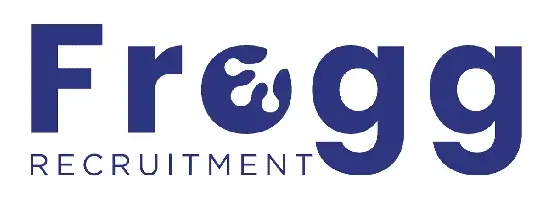Tag: interview questions
-

Unique interview questions to ask potential employers
Continue ReadingUnique Interview Questions to Ask Potential Employers.
What are some unique interview questions to ask potential employers during the interview? So, job interviews are normally a two-way street where both the employer and the jobseeker try to understand if they are the right fit for each other or not.
10 Unique Interview Questions to Ask Potential Employers
Can You Describe a Typical Day in the Life of An Employee in This Role?
This question offers a glimpse into the daily responsibilities and tasks associated with the job role. This unique routine can help you visualize whether the role aligns with your skills and interests.
2. How Does the Company Support Professional Growth and Development?
Inquiring about professional growth opportunities demonstrates your commitment to continuous improvement.
3. What Qualities Have Led to Success Within the Team or Department?
Another unique interview question that you need to ask the employer is one that reveals the traits that the organization values and rewards. This allows you to assess whether your strengths align with what the employer considers essential for success.
4. How Does The Company Promote Work-Life Balance?
As work-life balance becomes increasingly important, this question signals your concern for maintaining a healthy equilibrium.
5. Can You Share a Recent Example of How the Company Responded to a Challenge?
Another question that delves into the company’s problem-solving approach and compliance. Also, it showcases your interest in understanding how the company navigates obstacles
6. What Are the Most Exciting Projects the Team Is Currently Working On?
Enquiring about ongoing projects demonstrates your eagerness to contribute. Because it also helps you evaluate whether the company’s initiatives align with your professional goals or not.
7. How Does the Company Foster Diversity and Inclusion in the Workplace?
Unique interview questions to ask the hiring manager after the interview. Diversity and inclusion are vital indicators of a progressive workplace. Asking this question demonstrates your commitment to a diverse work environment and highlights the company’s values
8. What Does Success Look Like for Someone in This Role After Six Months?
Smart questions to ask in an interview from our employer, this question provides clarity on performance expectations and timelines. It reveals whether the company has a well-defined vision for new hires’ success.
How To Talk What Is Weakness For Job Interview?
9. How Does the Company Keep Employees Engaged and Motivated?
Unique questions to ask the interviewee, because employee engagement is crucial for productivity and job satisfaction. Inquiring about engagement strategies underscores your interest in being a proactive and motivated team member.
10. What Sets Your Company Apart from Competitors in the Industry?
This is another killer question to ask at the end of an interview. This question allows the employer to highlight the company’s unique value proposition. It also demonstrates your intention to align yourself with an organization that stands out.
Conclusion
Asking unique and thought-provoking questions during a job interview serves multiple purposes. It showcases your genuine interest in the company, supports you in assessing the organization’s culture, and empowers you to make an informed decision about your potential future. These questions also provide you with an opportunity to stand out as a candidate who is not only well-prepared but also deeply invested in finding the right fit. So, the next time you are in an interview, don’t hesitate to pose these unconventional questions and embark on a journey of mutual discovery. So, above are unique interview questions to ask your potential employers. If you want to find out more about what we do as one of the top employment agencies, view Our Expertise.
Follow our social pages and find out about more open vacancies LinkedIn and Facebook.
-

Impressive questions to ask during an interview
Continue ReadingIMPRESSIVE INTERVIEW QUESTIONS TO ASK DURING AN INTERVIEW
Who will be in the interview, and will they ask difficult questions to trick me? The answer is not necessarily to trick you but to get to know you. How long will the interview be, and what kind of questions will be asked? Read this blog about impressive interview questions to ask during an interview. How will the interview be conducted? A lot of questions make you nervous, yes it does. Important to remember is that it’s natural and normal to be nervous. Now all that stands between you and the job you want is being able to answer the interviewers’ questions, right? Furthermore, we will talk about impressive interview questions to ask during an interview.
Jobseekers forget that a job interview isn’t just a chance for the hiring manager to decide whether you’re the right fit for the job. It’s also a chance for you to find out whether the company you’re interviewing with is the right fit for you. To gather that information, you are going to need to make a list of impressive interview questions to ask during an interview.
Ask the right questions
Asking the right questions will help you decide whether you’d be happy in the role you are interviewing for and whether the company is a good fit for you. More importantly, asking questions about the role shows enthusiasm. If you have no questions, you could come off as uninterested.
Competitive job markets
In a competitive job market, you must take every opportunity to make yourself memorable and increase your perceived value in an interview. Firstly, find out what matters most to the hiring manager. When invited to ask questions, it is crucial that you ask them. Therefore, have your list of questions ready. Additionally, do your research and have those impressive interview questions to ask during an interview ready. Furthermore, I’d recommend having at least four or five of your own questions ready to ask during the job interview. Moreover, some of the answers might be given to you during the interview, so always make sure you have a few extra questions prepared.
Never ask about salary or benefits in the first interview (it leaves an impression that you are only interested in earning a higher salary). Depending on your salary expectations, you should be asked about your salary expectations before your interview to ensure it’s not a waste of time for you In addition, never ask basic questions about the company that could be answered just by looking at its website. By doing so, it will make it clear that you haven’t done your research. Therefore, interview preparation is KEY!!
Instead, impress the interviewer with some prepared questions that get to the heart of the role.
Taking the time to prepare these questions serves four main purposes:
To learn more about the specific needs of the company and the hiring manager.
To demonstrate that you’re truly interested in the position.
To learn about the corporate culture and the company.
To uncover and discuss any concerns the hiring manager might have about your candidacy.
To ensure that YOU feel comfortable in possibly joining the company.
To ensure that YOU join a company with the right culture fit.
Learn to look beyond the job title/salary and what you think that role should entail. Find out what specific problems the company is dealing with so that you can explain how you’ve handled similar problems in the past.
Research the company extensively before the interview so that you can intelligently discuss its products and services. Remember, it’s not always the most qualified candidate who gets the job. Sometimes it goes to the most enthusiastic person.
Here are examples of interview questions to ask at your next interview:
Interview questions to ask about the job:
What does a typical day/week look like?
What are the main priorities of the role?
What are the skills and experiences an ideal candidate would have?
Is this a new role or a replacement?
Interview questions to ask about their expectations:
What do you expect your new hire to achieve in the first three to six months on the job?
How will my performance be measured in this role?
What is the official performance review process like at your company?
What is the most important and pressing problem for this new person to tackle?
What could the person who gets this job do differently than their predecessor?
Interview questions to ask about the company and its culture:
I’ve read about your recent acquisition/merger/IPO. Can you tell me more about how it will impact the organization?
How would you describe the work environment here?
Can you discuss your take on the company’s corporate culture?
How would you describe the company’s values?
Interview questions to ask about training and professional development:
What training opportunities are available to your employees?
Are there opportunities for advancement or professional development?
Why have employees previously in this role decided to move on?
Is there a formal process for advancement within the organization?
What is the organization’s policy on transfers to other divisions or other offices?
Are lateral or rotational job moves available?
Interview questions to ask about the team:
Can you tell me about the team I’ll be working with?
Can you share any information about my direct reports? What are their strengths?
What are the team’s biggest challenges?
Which other teams/stakeholders does this team interact with most?
Interview questions to ask about the interviewer:
How long have you been with the company?
What do you enjoy the most/the least about working here?
Why did you decide to join this company?
Interview questions to ask about the next steps:
What is the next step in the interview process?
When are you hoping to fill this role?
Do you have any additional questions or concerns regarding my candidacy that I could address for you before I go?
At the end of the interview, thank the interviewer for his or her time, express your interest, and determine the next steps in the hiring process.
Final Thoughts on Job Interviewing Success
In a competitive job market, you must take every opportunity to make yourself memorable and increase your perceived value. First of all, find out what matters most to the hiring manager. When invited to ask questions, ASK THEM! In fact, there’s a reason why we are providing you with impressive interview questions to ask during an interview. So, do your research and make those questions count.
Additionally, by asking relevant questions, you can demonstrate your interest and knowledge in the company. Moreover, it allows you to gather important information that can help you make an informed decision if you receive a job offer. Furthermore, asking thoughtful questions can leave a lasting impression on the hiring manager and set you apart from other candidates. Lastly, don’t be afraid to ask follow-up questions or seek clarification on any points discussed during the interview. If you want to find out more about what we do as recruiters as one of the top recruitment agencies, view Our Expertise.
Please share a comment or feel free to post a comment on our social pages Facebook, LinkedIn and Instagram.
-

Advice and tips on how to ace...
Continue ReadingAre you seeking advice and tips on ace a job interview?
Applying for jobs is the easy part, job seekers would say. The process of applying for an available vacancy and getting the interview. Finally, how the get the job offer (how to get the job offer will follow in a follow-up article).
How to start – A resume or a Curriculum Vitae, is much more preferred. A well-written CV is still the most accepted form of applying for a vacancy.
With that said, we will focus on some of the BIGGEST mistakes and BEST tips we have found in jobseekers. This list is not the ‘be all and end all’ of how to compile a great CV. It will go a long way in making sure your CV is noticed. Hundreds of CV’s are re-screened daily by HR personnel and Recruiters (also called ‘screeners’).
IMPORTANT FACTORS TO TAKE INTO CONSIDERATION WHEN CONSTRUCTING A “RESUME” OR “CV”
RELEVANCE
There is nothing more frustrating to the screener than to open the CV of an applicant that has absolutely NO chance of being invited for an interview. The reason might be that the applicant possesses none of the minimum requirements. READ THE JOB SPEC CAREFULLY BEFORE APPLYING.
Do not make a fool of yourself by just applying randomly. The screener will not automatically think this applicant is not suited for this position. They will move on, but we have another position that applies’ as a screener goes through hundreds of CVs.
READ THE ADVERT PROPERLY – Advice and tips on how to ace a job interview
You may feel you have a chance to get this job you are applying for. Why do you then send the same CV you sent for another vacancy?
Why not tailor your CV in an honest way to showcase your relevant talents and experience? You have many more skills that you might initially know of, and only you can explain it to the screener.
There are many ‘similar’ positions open in a variety of industries, however, industry experience is a must these days.
If you are an entry-level job seeker, do not try an apply for positions where experience is necessary. Yes, it is a ‘Catch 22’. Instead, focus your efforts on internships and apprenticeships where companies are only seeking first-time work seekers. You will save yourself a lot of frustration.
Other aspects to respect in the advert could be proficiency in specific software, an extra language, or years of experience in a specific role or responsibility. Others include driver’s license requirements, passport requirements, travel requirements, and even the gender they prefer.
Many companies these days also use software to find the best candidates out of all the applicants and CVs that might be on their database. Usually, more frequently than not, the software is designed to pick up certain specific keywords. Making sure your CV has relevant information increases your chances of being properly reviewed and perhaps even getting the interview.
Try and understand all the requirements the company has, and if you truly feel you will add value then elaborate it specifically in your CV but keep it short.
THE COVER LETTER
The document, which could be overlooked but has proved to have traction over the last couple of years. The reason is once again that the screener does not have the time to read every cover letter in detail to see the relevance of your possible suitability. It has proven that the Cover Letter becomes so detailed and consists of long paragraphs (see next section on paragraphs) that screeners just skip it and go after the meat of the CV. Should you absolutely have to motivate certain factors in your CV, do it in such a manner so that the screener can see it right away.
STRUCTURE OF YOUR CV
A standard structure of a great CV has always been a topic of conversation between screeners. There is one simple truth though: Keep It Simple! We all have so much to say, and we wish to make the best impression with our CV, and with this, we sometimes start to Google the formats, and even go so far as to import pre-made formats from Microsoft Word. We see words such as “Chronological”, “Functional” and “Combined” and we follow the format and think this is going to be perfect.
The realistic answer is that there is no perfect structure.
The first thing to keep in mind (in line with the above section) is to not write paragraphs. Keep it to bulleted items wherever possible, especially in describing your present and past duties. The screener is after information and not the overall beauty of your CV. Be sure to check your spelling and your grammar…twice.
Personal Details
Provide your personal details as detailed as possible (living location, contact details, gender, age, citizenship and/or country of birth, languages and proficiency in each, driver’s license, main mode of transport, citizenship and passport/travel record, criminal record) honesty goes much further.
Career Summary
Give a career summary and include your starting and ending dates as well as the reason for each change of employment. Stay away from general statements such as ‘end of contract’, rather also include the reason for the end of the contract such as “Temp Contract to stand in for Maternity Leave” or “Project Based and Project was completed”. Follow advice and tips on how to ace an interview through a reputable recruitment agency like FROGG Recruitment
If you were dismissed for misconduct, incapacity or poor performance then list it, give more detail, or ask the screener to contact you for more detail. See the part on Referees down below for more. You can always include in the first part of the CV (not to confuse it with a covering letter) why the screener first should take your application into consideration. Although you might not meet the requirements of the letter.
References/Referees
Strictly speaking a reference is a written letter made by a Referee. A referee is the supervisor/manager who could be contacted by the screener to verify your previous employment and with whom to conduct a formal “reference check”. Nonetheless stating an invalid Referee in your CV will undoubtedly disqualify your application.
Keep it honest.
Should you have a soiled career history declare it forthwith. Many positions have been filled by people who have admitted to making a mistake in the past but had the courage to admit it and learn from it. Trying to hide previous misconduct will not play in your favour. On the other side of the coin, your Referee’s statement could make the scale tip in your favour.
FINER DETAILS
Along with the “READ THE ADVERT” section above, other finer details that screeners pick up immediately will most usually make the difference between your CV being shortlisted or not.
Some considerations are the following:
Living Location
Companies are looking for someone already staying close by to their offices. On occasion the spread for candidates is increased, so make sure the company will be willing for MS Teams/Zoom Interviews or will be willing to pay for an air ticket, etc. That is if they are looking for a potential Candidate from other areas.
Age
Yes, this might perhaps seem unfair to some at the first outset, but with age comes experience and a certain level of expertise. Companies sometimes want people they can mould and at other times someone that can ‘hit the ground running’. Make sure you at least provide your birthday, if you feel you might be out of the age range (especially if the advert states something like ‘young’). State your age and comment that you still view yourself as ‘young’.
Relevant qualifications
There might be a qualification you have that could support your application. Include your relevant qualifications as detailed as possible, with the service provider where you achieved the qualification and the date achieved.
IRRELEVANT INFORMATION:
There is certain information in your CV that you do not need to provide such as:
Achievements that have no relevance
Being a sports team captain in high school or achieving an art or Debate Prestige Award has no relevance. UNLESS it is in line with what you are applying for. Be sure to showcase your relevant strengths and experiences.
No body particulars
If you are not applying for a position as a model, sports coach, or a vacancy where your body plays any part, there is no need to provide your weight, height, eye colour. Also, be wary if you decide to provide a picture of yourself. This might be relevant to certain positions such as sales reps or brand managers. However, a ‘top down’ selfie showing cleavage or a shirtless photo showing off your sixpack will not be respected by most.
Photographs are generally accepted as a face photo from the shoulders up and with a front view.
Hobbies
Although stating that your hobbies include watching TV and listening to music shows that you are human, it will not necessarily support your application. Generally, refrain from stating your personal hobbies or extracurricular activities otherwise.
General Skills
This might be a point of debate for some, especially after the whole SKA movement (Skills, Knowledge, and Attitude) of the mid-2000s. However, listing your key skills without any supporting evidence in your past and present duties might be a mood killer. Rather display your ‘SKAs’ in your working history rather than stating a long list of your skills that almost looks like a ‘copy-paste’ exercise from a Google search.
RESPOND TO CORRESPONDENCE ASAP
It does not really need to be stated but should someone contact you after your application be sure to respond. If it is a telephone call and you cannot talk, make a time when you are available. If it is via email respond as soon as you can.
If supporting documentation is needed, then provide it as soon as possible. A good practice will be to have certified copies of your ID, Drivers Licence, Qualifications, and any other documents ready on PDF to be sent electronically. Save this on your phone or in any other convenient manner, so that it can be sent at a moment’s notice.
Sometimes placements can be as quickly as 24 hours, sometimes it can take two to three months, however, your willingness to correspond quickly says a lot to the screener and can be used as a motivational factor.
CONCLUSION
By following the tips, you will not only increase your chances of getting invited for an interview, but you will feel more confident during the interview while you are sitting in front of the interviewees. If you want to find out more about what we do as one of the top staffing agencies, view Our Expertise.
Remember – screeners want to give you an interview, and the only person keeping you from the interview is yourself…do the right thing – have a great CV and apply for the right vacancies.
Please share a comment or feel free to post a comment on our social pages Facebook, LinkedIn and Instagram.
-

Recognizing employees in the working environment
Continue ReadingWhy Recognizing Good Work is Important
It’s no secret that happy employees are more productive employees. Numerous studies have shown that happy workers lead to happier customers and, ultimately, increased profits. How do you make your employees feel satisfied and content? One effective way is to show them appreciation for their good work. Hence, why recognizing employees in the working environment is important.
Recognizing your employee’s hard work is important for several reasons.
First, it boosts morale and makes your employees feel valued. When employees feel appreciated, they are more likely to be loyal to the company and less likely to look for other job opportunities.
Second, recognition can help improve job effectiveness, satisfaction, and motivation. If employees feel that their good work is going unnoticed, they may become discouraged, and start to feel negative and unvalued. If they feel that their work is being recognized and appreciated, they will be more likely to succeed, stay motivated and continue working hard.
Third, recognition can help build a positive and effective work environment. When employees feel appreciated, they are more likely to treat their co-workers with respect and courtesy. This, in turn, can lead to better teamwork and a more positive work environment overall.
Finally, recognizing your employee’s good work can help you attract and retain top talent. The good talent these days look to join companies that are well presented on the media and internet. If word gets out that your company is a great place to work because you appreciate and recognize your employee’s hard work, you’ll have an easier time attracting and retaining the best and brightest employees.
Why You Should Encourage employees to recognize each other In today’s workplace
It’s more important than ever to encourage employees to recognize each other.
Recognizing Good Employees in the working environment
Here are four reasons why:
- Recognition Boosts Morale And Motivation.
When employees feel appreciated, they’re more likely to be engaged and motivated at work. Recognition is a simple but powerful way to show employees that their hard work is valued.
- Recognition Fosters A Positive Work Environment.
A positive work environment is important to employee satisfaction and productivity. Recognition helps create a positive work environment by promoting teamwork and collaboration.
- Recognition Enhances Communication.
Recognizing employees for their good work can help improve communication between managers and employees. When employees feel their efforts are being noticed and appreciated, they’re more likely to open up and share ideas with their managers.
- Recognition Builds Trust.
Trust is essential to any successful working relationship. When employees feel they can trust their managers, they’re more likely to be productive and committed to their jobs. If you want to find out more about what we do as top recruiters at one of the top personnel agencies, view Our Expertise
Recognition is a key ingredient in building trust between managers and employees.
Please share a comment or feel free to post a comment on our social pages Facebook, LinkedIn and Instagram.
